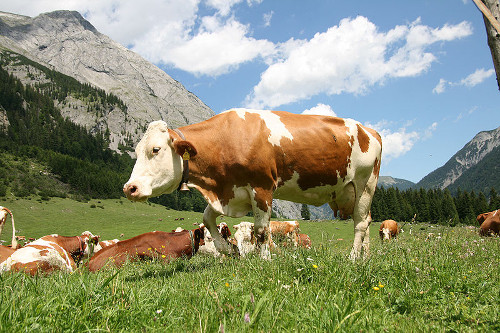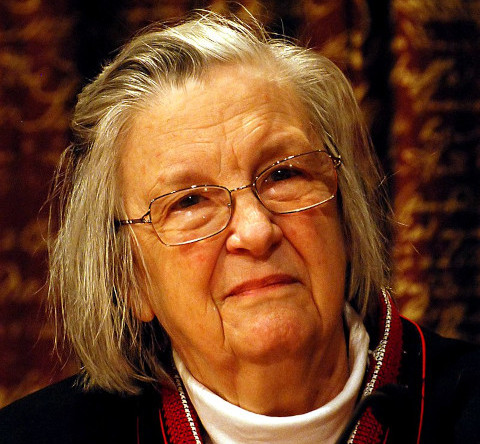
Learn
Discover the power of community ownership
Introduction
How can communities provide affordable housing, food, utilities and care in ways that heal divisions and allow us to come together to live abundantly, democratically, sustainably and peacefully?
We believe that this can be best done by building the commons.
Commons is becoming a buzzword for meaningful change in the world – a viable alternative when it comes to ownership and control of resources. People of all political persuasions seem to like the idea even if they don’t understand precisely what it means. Here we’d like to introduce some basic concepts and explain what we’re doing and what we hope to do in Stroud, with links to dive deeper if you’d like to know more.
What do we mean by ‘commons’?
Commons is a tricky term to define. It’s easier to think of it as a verb (commoning) or a state of mind. ‘Commoners’ are interested in living in strong communities where everyone is provided for and cared for. Humans have evolved as social animals, and so being a commoner is just about as ‘normal’ or ‘natural’ as it’s possible to be.
It’s easier to describe what commoning isn’t – for example, it’s not about providing life’s essentials via corporations, banks or the state. Commons have 3 parts:
- Resources / assets (e.g. housing, land, energy and water infrastructure, care)
- ‘Commoners’ (local people who own, control and use those resources)
- A set of agreements (written by the commoners, so that the resources are not lost, by being sold or used up)
See this video for a 2-minute overview:
When they hear the word commons, most people probably think of common land – which has a long history in the UK and around the world. They probably also know that most of that common land was enclosed (stolen) by monarchs and centralised powers. Here’s a Short History of Enclosure in Britain, from The Land Magazine.
But now, there are commons models for every sector of the economy, not just land. There are other community-oriented models / institutions too, that are not exactly commons, but are very close in their aims and values. We can certainly work with them, and provide them with tools for asset-locking, avoiding debt and federation etc.
These include co-ops, community land trusts, credit unions, free & open source software and hardware, building societies, community energy schemes, wikis, community-supported agriculture and more.
More information:
Short intro: David Bollier, Commons, Short and Sweet.
Deeper: David Bollier again, on commons as a way to transform society.
Deeper still: a look at commons as an alternative to the market and the state.

Ostrom’s commons principles
You may also have heard of Garrett Hardin‘s famous essay, the Tragedy of the Commons, in which he claimed that commons will always fail because of incentives for all users of a common resource to take a little more than their fair share until the resource collapses. Elinor Ostrom pointed out that Hardin was talking about a free-for-all, not a commons – for which she received a Nobel Prize. She showed how communities can develop systems of self-governance to manage resources without the need for top-down government intervention or privatization.
In her book, Governing the Commons (see below), Ostrom outlined principles for successful commons. To summarise: resources are not owned privately, but it’s not a free-for-all either – there are boundaries and agreements so that all users know what’s expected of them, and what they can expect to receive; commoners make and monitor the agreements themselves – they’re not imposed from above – i.e. not by the state; each local commons can fit into a larger geographical commons, and so on, up to the global scale – a commons movement. Here’s the full list of principles.
- Clearly defined boundaries: commoners understand what resources they have responsibility for, and who with.
- Regulations correspond to the needs and conditions of the community: commoners understand the relationship between contribution and benefits.
- Collective decision-making: individuals affected by the regulations can participate in changing the regulations.
- Monitoring: commoners monitor and re-assess the rules / commitments themselves, or appoint others, drawn from, or accountable to the commoners who ensure they’re adhered to.
- Graduated sanctions: commoners design sanctions for violations of rules / commitments, depending on the severity of the violation.
- Conflict resolution: commoners devise conflict-resolution mechanisms that are low cost and easily accessible for all members.
- Local autonomy: commoners can create regulations and institutions without the infringement of an outside authority.
- Nested groups: if part of larger systems, commons groups are organised in multiple layers of nested groups.
More info:
The Tragedy of the Commons is a false and dangerous myth.
Deeper: Governing the Commons (pdf)

Commons models / tools
Stroud Commons are partnering with other organisations to develop and trial a package of commons models and tools, some ancient and repackaged for the 21st century, and some new. We’ll be building toolkits so that they can be replicated in communities everywhere, and networked together. Below are the models we’re working with and what we’re trying to achieve with them:
1. Avoiding debt
Challenge: community groups find it difficult to obtain resources / infrastructure without going into debt or selling equity. Imagine an energy group wanting to put up a wind turbine. At the moment, they’d need to go into debt or give away equity, which means the infrastructure will be in the hands of capitalists before long (as happened with many co-ops and building societies).
Solution: use-credit obligations
Brief explanation: we can bring assets into the commons without debt, by issuing vouchers sold at a discount. An energy commons group, for example, will issue energy vouchers, denominated in kWh, not £ (which makes them inflation-proof). People will want them because they’re sold at a discount, and they provide a store of value – interest-free security for old age or sickness. This basic idea can work in every sector of the economy, and vouchers (especially housing, water, food, energy, care) could form the basis of a pension, based in communities and separate from the finance system.
Partners: Island Power developed the idea for the modern world; Mutual Credit Services (MCS) are adapting the idea for every sector of the economy; and Stroud Commons are applying it to housing, climbing, land, energy and water.
More information: Lowimpact.org, MCS
2. Reducing the need for money
Challenge: small businesses struggle with late payments and cashflow problems, and find it difficult and expensive to get bank loans.
Solution: credit clearing
Brief explanation: it can massively reduce the amount of bank-issued money required for a local economy, and therefore prepare the ground for commons to be built. it’s a medieval idea, that’s been adapted. It’s something the banks do, to reduce the need for cash to pay debts. But we can do it too. Imagine A owes B £10; B owes C £10; and C owes A £10. If everyone has all the information, it can just clear, without needing money to pay debts. For networks of trading small businesses, this can be done with algorithms, covering large areas.
Partners: Mutual Credit Services (MCS) have adapted the idea for modern communities, and it’s being implemented in Liverpool by Local Loop Merseyside. They have the city council, university and Chamber of Commerce on board, and they’re already talking with interested groups in Manchester, Leeds and other cities.
More information: Lowimpact.org, MCS, Wikipedia
3. Trade without money, interest or banks
Challenge: how can trade happen in communities without allowing wealth to be siphoned out?
Solution: mutual credit
Brief explanation: within larger credit clearing areas, smaller clusters of businesses can be found that trade with each other regularly. They can share a ledger in which members get an account (with numbers, but not money), set at zero. When they sell, their numbers go up. When they buy, they go down. There are limits to how far anyone can go into credit or debit. It’s just an accounting system, for who’s done what for whom – no money required, so nothing to extract from communities A mutual credit network can be ‘distilled’ from a credit clearing scheme, because instead of bringing accounts back to zero, trusted businesses can continue to trade with each other on account. There are mutual credit schemes all over the world, but successful credit clearing schemes will speed up their growth.
Partners: Mutual Credit Services (MCS) have adapted the idea for modern communities, and it’s being implemented in Liverpool by Local Loop Merseyside.
More information: Lowimpact.org, MCS, P2P Foundation Wiki, Wikipedia
4. Strong asset locks
Challenge: how do we prevent appropriation of commons assets by capitalists (as happened to the Co-op Bank and most building societies).
Solution: ‘custodian’ member class, in a multistakeholder organisation
Brief explanation: commons groups have different member types – users / customers, investors, stewards (employees), but also a ‘custodian’ member class (a bit like trusted ‘village elders’), who have a veto vote to make sure that commons principles are not violated (e.g. commons houses are never sold again). Citizens’ assemblies could help find custodian members in all communities.
Partners: Mutual Credit Services, Island Power
More information: P2P Foundation Wiki
5. Federation
Challenge: how can we connect commons groups in different communities, to form the basis of a new, commons economy?
Solution: credit commons
Brief explanation: allows federation of the commons economy to the global scale. All commons projects can be connected together via the ‘Credit Commons Protocol’ – a language that they can all speak that allows them to trade between each other – but in a federation, with no centre. Each local group retains full autonomy. Everything is interoperable, so that people can eventually pay for their housing, energy or care vouchers, and do their local shopping, and receive wages etc. in vouchers or mutual credit.
Partners: Mutual Credit Services, Creditcommons.net
More information: Lowimpact.org, MCS, Creditcommons.net
6. Healing social divisions
Challenge: how do we counter threats such as polarisation, disinformation, and radicalisation within communities?
Solution: Atlas Cultura
Brief explanation: helps us understand what makes different communities special. It shows how people in a group think and act, which helps those who work with shared resources (like land, water, or knowledge) to work better with others, and make fair decisions.
Partners: OICD
More information: OICD
7. Commons governance
Challenge: how do we build the decision-making structures and procedures to make the commons happen.
Solution: sociocracy & citizens’ assemblies
Brief explanation: citizens’ assemblies are a good tool for wider governance, and we’re experimenting in Stroud with sociocracy-like structures – linked circles of stakeholders – to make decisions within the different economic sectors.
Partners: MCS, Sociocracy For All (SoFA)
More information: Lowimpact.org, SoFA, MCS
